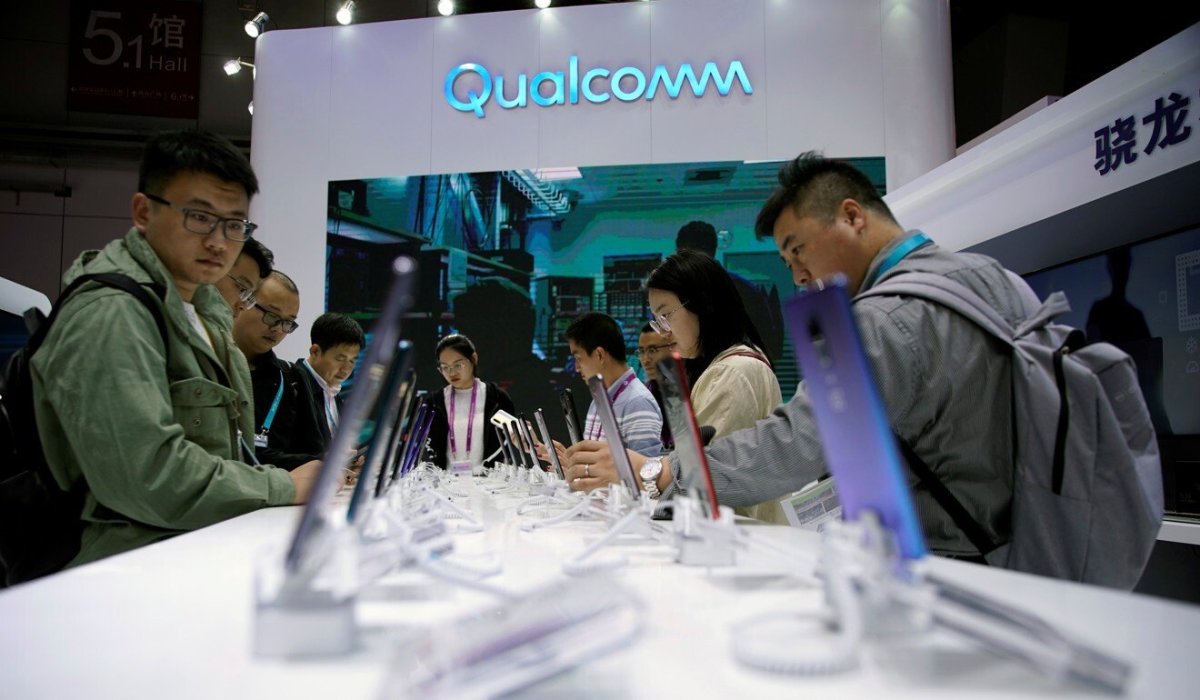
If you own a smartphone, chances are Qualcomm (QCOM) has a hand in it.
The company’s Snapdragon processors and modem chips power millions of smartphones, from Samsung (SSNLF) and Google (GOOGL) to Xiaomi.
Even Apple (AAPL) , which is developing its own modem chips to replace Qualcomm components, still relies on Qualcomm’s technology for the iPhone.
But Apple and Qualcomm haven’t always been on good terms. In 2017, Apple sued Qualcomm, accusing it of charging excessive royalties and abusing its dominant position in the smartphone industry. Qualcomm fired back, claiming Apple stole trade secrets to help its modem supplier, Intel (INTC) .
💰 Stay ahead of the markets: Subscribe to TheStreet's free daily newsletter💸
The battle dragged on for two years.
In 2019, the two companies suddenly settled, with Apple agreeing to a multibillion-dollar payment and signing a new licensing deal with Qualcomm.
Since then, Apple has continued to use Qualcomm’s 5G modems, though it has been working on its own modem chips to reduce its reliance on Qualcomm.
But Qualcomm does not fear losing Apple, one of its largest customers.

What's Qualcomm's cash cow?
Qualcomm earns billions not just from selling semiconductors but from patents. It owns key patents for mobile communication, like 5G, meaning companies like Apple and Samsung pay Qualcomm a fee for every phone sold, even if they don’t use its chips.
The two main revenue streams are categorized as QCT (Qualcomm CDMA Technologies), which includes the sales of Snapdragon processors, modems, and other semiconductor components; and QTL (Qualcomm Technology Licensing), which collects royalties on its patents.
Related: Fund manager who predicted Nvidia’s selloff makes a bold move
For years, QTL has been more profitable than QCT because it’s essentially pure profit — Qualcomm doesn’t need to manufacture anything; it just collects fees for technology.
Veteran Wall Street fund manager Chris Versace said on TheStreet Pro that he liked Qualcomm's chip business even more after reviewing the company's latest earnings report.
Qualcomm's chip sales aren’t only about smartphones. They are now used in self-driving cars, AI-powered PCs, smart home devices, and even VR headsets.
"The segment benefited from record smartphone revenue, but more importantly, in our view, showed notable progress on Qualcomm’s efforts to diversify its revenue stream away from that end market," he wrote.
"Granted, the Automotive and [internet of things] business today are still relatively small compared to smartphone, but management reiterated its 2029 target of $22 billion in nonhandset revenue. We should see continued progress toward that long-term goal in the coming quarters," he said.
Related: Fund manager who predicted Nvidia’s selloff makes a bold move
Qualcomm’s earnings topped Wall Street consensus
On Feb. 5, Qualcomm posted its earnings for the fiscal first quarter ended Dec. 29.
The company reported adjusted earnings per share of $3.41, surpassing the Wall Street analyst consensus of $2.97. Revenue also beat forecasts, reaching $11.67 billion, compared with expectations of $10.9 billion.
The revenue from its QCT division increased 20% to $10.1 billion. Within this division, the fastest-growing business is automotive, which grew revenue by 61% to $961 million.
Qualcomm's Q2 guidance also topped expectations. The company forecasts adjusted EPS between $2.70 and $2.90, against the consensus estimate of $2.71. Revenue is expected to range between $10.2 billion and $11 billion, bracketing analyst expectations of $10.36 billion.
Chief Executive Cristiano Amon said on an earnings call that Qualcomm benefited from the recent release of the DeepSeek R1 AI model because its chips can run the model locally instead of in the cloud.
“DeepSeek R1 and other similar models recently demonstrated that AI models are developing faster, becoming smaller, more capable and efficient, and now able to run directly on device,” Amon said.
Related: Veteran analyst makes surprising pivot on AMD stock after earnings shock
Analysts weigh in on Qualcomm stock after earnings
TD Cowen raised its price target on Qualcomm to $195 from $180 with a buy rating, according to thefly.com.
The investment firm said Qualcomm posted solid results and guidance driven by record handset revenue.
But TD Cowen said investors are focused on the flat year-over-year outlook for Qualcomm’s QTL segment in fiscal 2025 now that Huawei's royalty revenue has been removed — an issue that had been dormant for years but is resurfacing.
Piper Sandler lowered Qualcomm's stock price target to $190 from $205 and reiterated an overweight rating.
More Tech Stocks:
- Analysts overhaul Palantir stock price targets after earnings
- Veteran trader says watch Nvidia, quantum computing stocks
- Apple's AI strategy could be saved by an unexpected source
The firm noted that Qualcomm's results and guidance exceeded Wall Street expectations for the December and March quarters.
But the investment firm also noted that Apple's seasonality has affected near-term guidance for March, pointing to a 10% drop in handset sales from the previous quarter.
Related: Veteran fund manager issues dire S&P 500 warning for 2025







